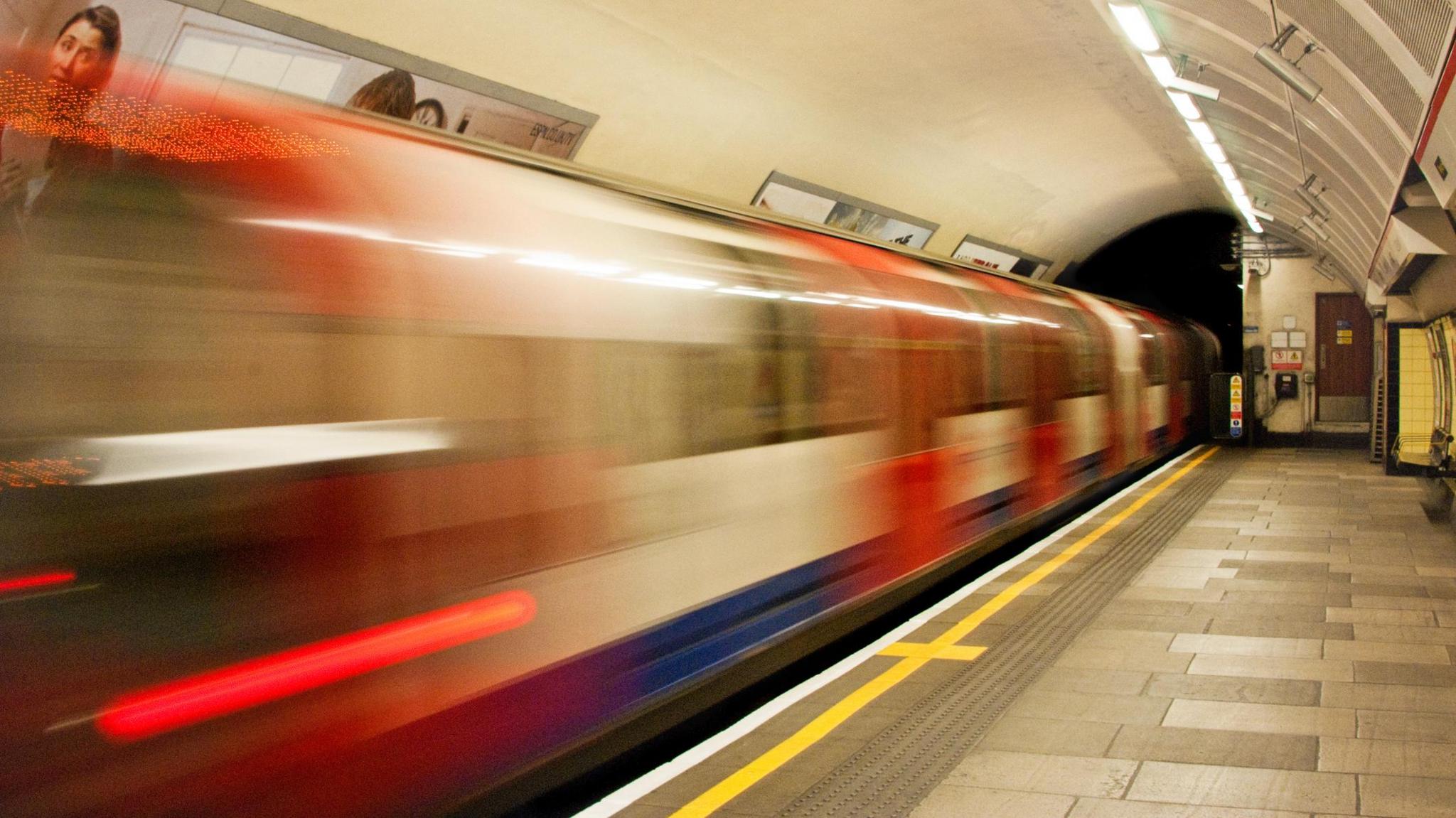Tube noise concerns raised by London Assembly

Tube passengers were regularly exposed to "hazardous" levels of noise, research found
At a glance
London Assembly's Environment Committee has expressed concern over excessive noise from the London Underground
More than 1,300 noise complaints were made between January 2020 and August 2022
The World Health Organization says noise can seriously harm human health
Transport for London (TfL) said minimising noise was "a priority"
- Published
Concerns have been raised over the health impacts of "excessive" noise of London's Underground trains, by a cross-party group of City Hall politicians.
The London Assembly's Environmental Committee warns of mental and physical impacts stemming from prolonged exposure to loud noise.
It has asked for Transport for London (TfL) to make noise data publicly available and to invest in track improvements.
TfL said minimising noise was "a priority".
'Serious consequences'
Research from The Laryngoscope, external found Tube passengers were regularly exposed to 'hazardous' levels of noise similar to those seen from power tools.
Writing to Andy Lord, TfL's commissioner, the London Assembly has urged for measures to be taken to reduce the impacts of loud noise.
The committee's chair, Zack Polanski highlighted research by the World Health Organization (WHO) that says environmental noise is the second largest environmental health risk in Western Europe, behind air quality.
Mr Polanski said Tube noise has been "a persistent issue in London with serious consequences for residents."
The letter claims noise pollution can impact cognitive development in children, tinnitus, sleep disturbance, and heart disease.
Also cited is a study in the Laryngoscope journal that found Tube passengers are "routinely and consistently" exposed to noise levels exceeding 80 decibels, and on some trains, over 100 decibels.
TfL's submissions to the committee state 80-100 decibels as 'hazardous' and levels over 100 decibels as 'highly hazardous'.
These are levels akin to chain saws and aircrafts taking off, the letter claims.
However, there is no legal limit on the noise levels Tube trains can produce.

Green Assembly Member, Zach Polanski, chairs the Environmental Committee
Complaints about Tube noise have been issued by people in the carriages, and by those living close to tracks.
Between January 2020 and August 2022 there were 1,341 noise complaints made.
Neil Smith, a campaigner against Tube noise, spoke to the committee over his struggles with trains running at a rate of "more than one a minute" near to his home in Islington.
"Some residents were registering close to 60 decibels, equivalent to a vacuum cleaner in the room with you.”
The letter issued three recommendations, notably making noise level recordings publicly available and issuing quarterly reports.
They also want the complaints process to be made easier, and a commitment to making track improvements.
Esther Sharples, TfL's director of asset performance and capital delivery, said minimising noise was "a priority".
In response to the letter, Ms Sharples also noted that TfL "continue to invest significantly in track renewal and maintenance, including a continuous programme of rail grinding and track modernisation".
Follow BBC London on Facebook, external, Twitter, external and Instagram, external. Send your story ideas to hellobbclondon@bbc.co.uk, external
- Published5 April 2022

- Published7 August 2022
